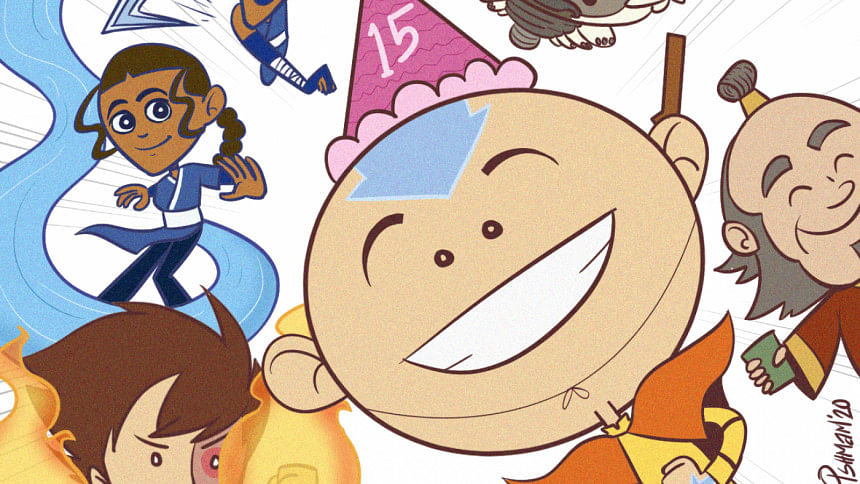A Song of Water, Earth, Fire and Air

It's been 15 years since Avatar: The Last Airbender made its debut on Nickelodeon. Co-created by Bryan Konietzo and Michael Dante DiMartino, Avatar has been critically acclaimed and has also amassed incredibly positive reviews from audiences of all ages.
One of the most distinctive achievements of Avatar would be its extraordinary character development. Considering the fact that its target audience was children, the show managed to deliver some of the most memorable character arcs in its short run of three seasons.
Aang, the protagonist, starts out as a 12-year-old boy burdened with the literal weight of the world on his shoulders. By the end of the series, he displays incredible levels of kindness, maturity, personal growth, and awesome power. Existing on the other side of the coin, the greatest arc definitely belongs to the once-banished prince of the Fire Nation, Zuko. Zuko had been abused and banished from his homeland by his father, the ruthless Fire Lord Ozai, and was sent on a seemingly futile quest to capture the Avatar, who had disappeared a hundred years ago. With the backdrop of a raging war, complicated relationships, and misguided adventures, Zuko sheds his past self as an angry prince desperate to please his wicked father and ultimately embraces a path of kindness and self-respect. The wonderful character development of the show contributes to its uniqueness and sets it apart from its contemporaries.
Another distinguishing aspect of Avatar would be its way of handling complicated issues that we face in real life. From the very first episode, the brute imperialism of the Fire Nation is evident and looming. Apart from that, the progression of the story also tackles the loss of loved, the phasing out of misogynistic views, overcoming physical disabilities and prejudice, and familial abuse. It's still incredibly refreshing to see a show talk about these complex issues in a way that exercises sensitivity and respect.
Along similar lines, an underappreciated facet of the show would be its implementation of different real cultures into the narrative. The most prominent example of this would be the bending as each nation has a distinct style based on real forms of Chinese martial arts. Apart from this, the world-building of the show expertly navigated taking inspiration from real cultures without resorting to appropriation.
These are just a few examples as to why Avatar is so universally loved. There is no doubt that the core essence of the show will still retain its timelessness, so why not revisit it in celebration?
Fatima Jahan Ena likes complaining about capitalism and her forehead. Find her at [email protected]

 For all latest news, follow The Daily Star's Google News channel.
For all latest news, follow The Daily Star's Google News channel. 



Comments